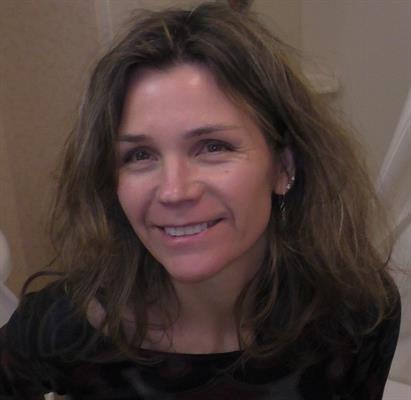
Hilary Binda

Research/Areas of Interest
Hilary's current research aims to support the development of educational equity and access as a form of racial and economic justice. In addition to a formative research study on the impact and efficacy of higher education in prison programming, Hilary's recent research includes a longitudinal study of reentry and the impact of specific types of programming offered in MyTERN on a person's health and well-being. Along with her research partner Professor of Sociology Jill Weinberg, she has facilitated several student publications of their own work based on their involvement with TUPIT.
Education
- PhD, English, Tufts University, United States
- MA, English, Tufts University, United States
- AB, Women’s Studies/Modern Culture and Media, Brown University, United States
Biography
Hilary Binda is the Founder and Executive Director of the Tufts University Prison Initiative of Tisch College, a college degree program hosted at MCI-Concord that has recently extended its course offerings to Souza-Baranowski Correctional Center and the Northeastern Correctional Center. TUPIT offers an associate degree and a bachelor's degree in Civic Studies to incarcerated students in Massachusetts. TUPIT also runs an accredited one-year college and reentry program on Tufts' Medford campus for people coming home from prison. This program of the Tufts Educational Reentry Network, MyTERN, offers 14 transferrable credits through 4 Tufts courses and a pathway to continued education for anyone who is directly justice system-impact. MyTERN also provides a laptop with intensive education in technology, as well as restorative justice circle experience, podcast development skills, and extensive employment and other reentry support. TUPIT currently engages approximately 75 incarcerated and formerly incarcerated students each year.
Hilary works as the primary liaison with the MADOC and coordinates the partnership with Bunker Hill Community College, the accreditor of the first degree. She serves as the academic advisor for Tufts' incarcerated students working on their liberal arts associate degree from BHCC and their Civic Studies bachelor's degree from Tufts. Hilary teaches an inside-out literature course at Souza-Baranowski Correctional Center that combines Tufts undergraduates and a selected cohort of incarcerated students. She also creates numerous opportunities for 50-75 Tufts undergraduates and graduate students each year to participate in TUPIT programming as students taking the same courses in MyTERN, as teaching assistants, as podcast co-developers, as TUPIT Student Coordinators, and as Research Assistants.
Hilary is the Co-Founder and Co-Editor - with Professor of English John Lurz - of ReSentencing, one of the first national journals of writing and visual art on the impact of incarceration by people with lived experience, mostly currently incarcerated across the country. She has also worked with Director of Tufts' Archival Research center Dan Santamaria and Devon Bean to create the digital ReSentencing Archive of all writing and art submitted to the ReSentencing journal.
Hilary works as the primary liaison with the MADOC and coordinates the partnership with Bunker Hill Community College, the accreditor of the first degree. She serves as the academic advisor for Tufts' incarcerated students working on their liberal arts associate degree from BHCC and their Civic Studies bachelor's degree from Tufts. Hilary teaches an inside-out literature course at Souza-Baranowski Correctional Center that combines Tufts undergraduates and a selected cohort of incarcerated students. She also creates numerous opportunities for 50-75 Tufts undergraduates and graduate students each year to participate in TUPIT programming as students taking the same courses in MyTERN, as teaching assistants, as podcast co-developers, as TUPIT Student Coordinators, and as Research Assistants.
Hilary is the Co-Founder and Co-Editor - with Professor of English John Lurz - of ReSentencing, one of the first national journals of writing and visual art on the impact of incarceration by people with lived experience, mostly currently incarcerated across the country. She has also worked with Director of Tufts' Archival Research center Dan Santamaria and Devon Bean to create the digital ReSentencing Archive of all writing and art submitted to the ReSentencing journal.